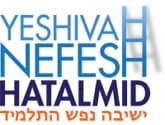In discussing the choreographed encampments and movements of Bnei Yisroel and the Midbar, which were determined by the position and movement of the Aron, the Midrash discusses the movement of the Aron in the times of Dovid HaMelech, when the Aron was lost in battle to the Pelishtim and then later returned. Before moving the Aron to Yerushalayim (connection to Yom Yerushalyim this week?) the Aron was placed in the home of Oved HaEdomi for safe keeping. The Midrash describes how as a result of the Kavod he treated the Aron with while he had it for safekeeping, his entire home was blessed, specifically through the success of his children and grandchildren (connection to the tefilas HaShelah we say this week?). Certainly, we all desire such a blessing on our home, families and children. The Midrash therefore advises us “if Oved received such Nachas and blessing from his children because of the Kavod he paid towards the Aron, which was made from inanimate objects and contained the luchos, mere stones, Kal Vachomer one who is Mechabed Rabbonim, Talmidei Chochomim, those who learn Torah, will receive the same blessings and Nachas from their children.
My Rebbe would often lament how today’s generation pursues segulos and brochos from Gedolim. Not that there’s anything wrong with them per se, but the motivation behind them often seems to stem from searching for shortcuts. For example, there is a well-known segulah brought down that guarantees one to become a talmid chochm and not forget his learning: Chazering 400 times. The sources say that this segulah has been tried and tested and is 100% authentic. I’m sure no one contests this, yet how many of us are ready to put it to use?
Likewise, when we say the Parshas HaMann every day (a segulah which guarantees parnassah), do we have in mind that saying these “magic words” will provide us riches or at the very least comfort, or is the point to internalize that all sustenance comes from Hashem and to be satisfied with what we have, and therefore we will have enough parnassah by default.
If the Midrash says if we are Mechabed Torah and Talmidei Chochomim we are guaranteed brocha and nachas from our kids, is this a “shortcut” to chinuch, or is the Midrash saying that if we create an atmosphere in our homes where Torah, Gedolim, Talmidei Chochomim are revered and taken seriously then by default our children will take what the Rabbanim and Torah say seriously and put it into action. Our kids need to see that we are serious about Torah if we want them to be. Its up to each couple to find ways in their own homes to do this. Some have a chavrusah in the home for a short time which can never be disturbed no matter what to show the significance of learning (this also creates a Kol torah in the home). Some of a section of their home set aside for learning. Some host shiurim in their home, or get involved in public and communal ways to be mechazek torah. The ikar however is to include the kids, that they should feel part of it, as the Aron was a part of Oved’s home. Likewise, are we ever critical of Talmidei Chochomim, Gedolim, Rabbonim, teachers etc. complaining about “chumras” or calling certain people or sects extreme. We must know who symbolizes Torah in our childrens minds and treat it as a fragile object (which it is). The teenage brain only sees things in black and white and cannot differentiate between “this Rav and that Rebbe” so easily, and end up extending the same judgement on other or all Rabbis, chazal and even the Torah Rach”Ltz”. Those who have taken psych 101 remember that the most effective type of conditioning and learning comes from modeling and observational learning. “Do as I say not as I do” doesn’t work. Let us start with a small but significant gesture, something that includes the whole family, something we will never be mevater on for anything, that demonstrates in a serious way the reverence we have for Torah and chazal. May this be a merit to us and our children, and bring us Nachas and Blessing from our children and grandchildren as the Midrash promises.

Leave A Comment